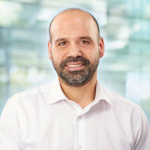Chevron Phillips Chemical VP Says Plastics Treaty Draft Ignores Circularity
HOUSTON -- A Chevron Phillips Chemical Co. executive said Sept. 13 he was disappointed by the first draft of the UN's global plastics pollution treaty because it prioritizes plastics production caps over circularity.
“If you want to address plastic waste, you got to work toward a circular economy,” said Benny Mermans, who serves as vice president of sustainability for Chevron Phillips Chemical Co. and CEO for the World Plastics Council.
Mermans commented on the so-called “zero draft” of a United Nations treaty to end plastics waste published on Sept. 4 while speaking during a panel discussion at the World Chemical Forum in Houston.
The plastics industry shares the goal of governments around the world to end industry waste, but caps on production will harm developing nations, which are reliant on plastics for economic advancement, Mermans said.
“The developing world doesn’t have the same aspirations, the same needs in order to move forward to end plastics waste,” he told event attendees. “They are still at the bottom of the food chain in that extent. They still have open burning sites, dumping sites, so you have to really make an instrument that is adaptable and palatable for everybody.”
Other speakers during the panel discussion stressed the need for collaboration among government, industry and the supply chain to deliver on circularity goals. Many people underestimate the amount of effort involved in plastics recycling, from the municipal collection level to the processing of the materials, said Natalie Stirling-Sanders, head of Americas for the Alliance to End Plastic Waste.
“All of that is really critical to making this whole circularity work,” said Stirling-Sanders.
The Alliance to End Plastic Waste is a global organization that focuses on enhancing waste management capacity and capability by improving collection, sorting, processing and recycling systems.
The U.S. Department of Energy (DOE) has embarked on a number of public/private partnerships to advance plastics recycling, including the BOTTLE Consortium, which stands for Bio-Optimized Technologies to keep Thermoplastics out of Landfills and the Environment, said Jay Fitzgerald, chief scientist for the DOE’s Bioenergy Technologies Office.
The organizations participating in the consortium are researching and developing scalable technologies for plastics circularity and energy efficiency. The DOE has partnered with several large corporations on the initiative, including Amazon, Procter & Gamble and Kraft Heinz, Fitzgerald said.
“I think that’s a huge step forward in terms of working toward a common goal and working towards and industrially relevant goal,” Fitzgerald said.
The UN’s Environment Program plans to have a global, legally binding plastics treaty completed by the end of 2024.


